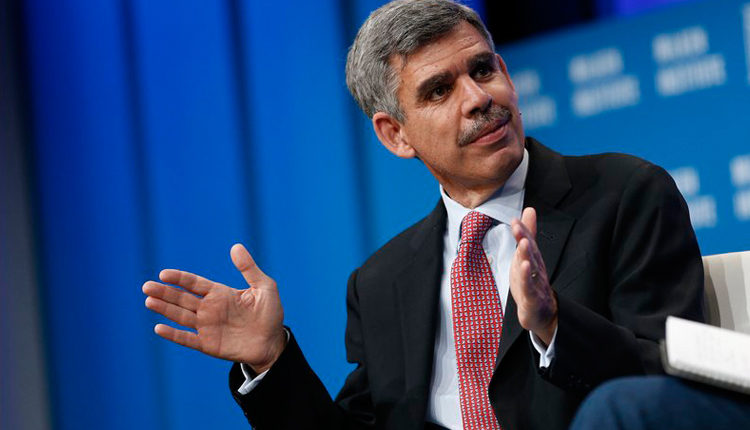The European Central Bank (ECB) could be prompted to hike interest rates sooner than planned against a backdrop of inflation and divergent monetary policy, Allianz’s Chief Economic Advisor, Mohamed El-Erian, warned on Tuesday.
“It wouldn’t surprise me if they (the ECB) start hiking in the middle of summer (2019), as opposed to the end of the summer, or even the beginning of the summer. But they’re going to retain optionality ’til the very last moment,” El-Erian told CNBC’s Nancy Hungerford Tuesday.
El-Erian, a prominent economist and one-time CEO and co-CIO of bond giant PIMCO, said the interest rate policies of central banks were diverging quickly. The Federal Reserve has already embarked on rate hikes amid robust U.S. economic growth while the euro zone’s central bank, the ECB, is approaching rate hikes with caution. It has yet to increase rates with the 19-country euro zone still showing signs of regional weakness, and vulnerable to mounting global trade tensions.
“The interest rate dynamics are completely consistent with divergence in economic policy and divergence in performance,” El-Erian said, adding, “The question is, does it (raising rates in one country) break something somewhere else?”
“The ECB, in particular, is going to be put in a tough position because they’re dealing with high inflation. And they’re going to have to think very seriously as to whether to accelerate their rate hikes.”
The ECB has signaled that it will not raise record low interest rates before September 2019, a month before current President Mario Draghi is due to leave his post. In the meantime, headline inflation in the euro zone is expected to be 2.1 percent in September, up from 2 percent in the previous month, and above the bank’s target of below (but close to) 2 percent.
Although rising oil prices have been largely seen as the culprit for inflationary pressures (and energy costs can quickly change) if the inflation rate rises further it could put pressure on the ECB to act sooner rather than later. Inflation can be counteracted with higher interest rates. But the ECB itself signaled in September that it would not be looking to increase interest rates quickly — a policy it put in place after the sovereign debt crisis of 2011 that looked to stimulate lending and growth.
Asked about what approach the ECB might take to normalize its policy and raise interest rates, El-Erian said the central bank would have to be very cautious and might not fully signal its next move.
“I think they’ll want to have as much optionality and we’re not going to hear anything for a while,” he said.
Source: CNBC
